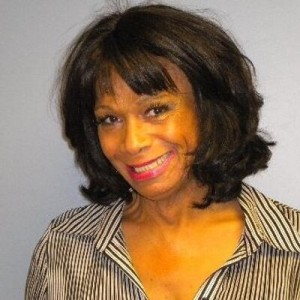As we enter the last days of Pride Month, I’m hopeful that the momentum from the US Supreme Court’s decision legalizing gay marriage in all 50 states will carry us through the rest of the year. Even after the rainbow flags have been put away and the glitter has been swept from the streets, it is crucial that we continue to fight for the rights of the LGBTQ community, in particular our vulnerable LGBTQ elders.
All too often, elders are left out of the conversation around HIV and STDs — we rarely see our elders targeted by HIV prevention and treatment campaigns. But older adults are still at risk for infections and should still be getting tested. Additionally, estimates predict that 50 percent of people with HIV in the U.S. will be age 50 and older by 2015—and by 2020, more than 70 percent of Americans with HIV are expected to 50 and older. While individuals with HIV/AIDS are living longer lives, older adults have more than three other (usually chronic) health conditions in addition to HIV versus their age peers without HIV. As a result, they have a host of health and services needs that neither HIV nor aging services providers are fully prepared to meet.
Now that we have marriage, what should our focus be as a community? HIV prevention, awareness, and care seems like a good place to start. The AIDS.gov National HIV Testing Day website can help you find a testing site near you, and our own website has a number of consumer resources for older adults living with HIV, which you can access here: https://diverseelders.org/what-to-know/hiv-aging/
 I’m inspired by the story of Helena Bushong, a 60-year-old trans woman living with HIV. Helena was diagnosed with HIV in 2002 and was given less than six months to live. Now, she is thriving, and she travels the country speaking to colleges and medical providers about what older trans adults need to live their authentic selves and receive support and treatment for this disease. She also encourages her peers to get active: “I encourage older adults to run, not walk, to the nearest computer and get busy. The aging community needs to be better informed and have better access to information on resources to improve the quality of their lives. The computer is also a very handy advocacy tool. Go to the White House webpage to check upcoming legislation in the House, such as Medicaid issues or the Affordable Health Care Act of 2010.”
I’m inspired by the story of Helena Bushong, a 60-year-old trans woman living with HIV. Helena was diagnosed with HIV in 2002 and was given less than six months to live. Now, she is thriving, and she travels the country speaking to colleges and medical providers about what older trans adults need to live their authentic selves and receive support and treatment for this disease. She also encourages her peers to get active: “I encourage older adults to run, not walk, to the nearest computer and get busy. The aging community needs to be better informed and have better access to information on resources to improve the quality of their lives. The computer is also a very handy advocacy tool. Go to the White House webpage to check upcoming legislation in the House, such as Medicaid issues or the Affordable Health Care Act of 2010.”
This message of support, love, and care is so important to our aging population. We should not face stigma for being ourselves or for our health. Diverse older adults should be accepted into the healthcare system with open arms — and that means affordable, accessible healthcare for all; transportation to and from appointments; freedom from elder abuse; and affirming, culturally competent care. Our work is not done to ensure a healthy future for our diverse elders. Check out Helena’s Story for more inspiration, and tell your own here.
The opinions expressed in this article are those of the author and do not necessarily reflect those of the Diverse Elders Coalition.

